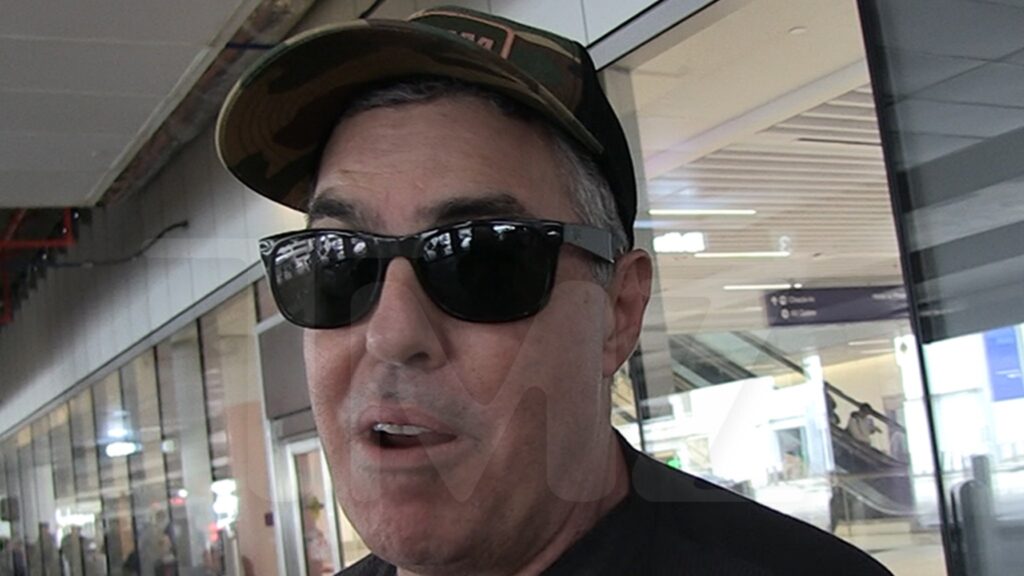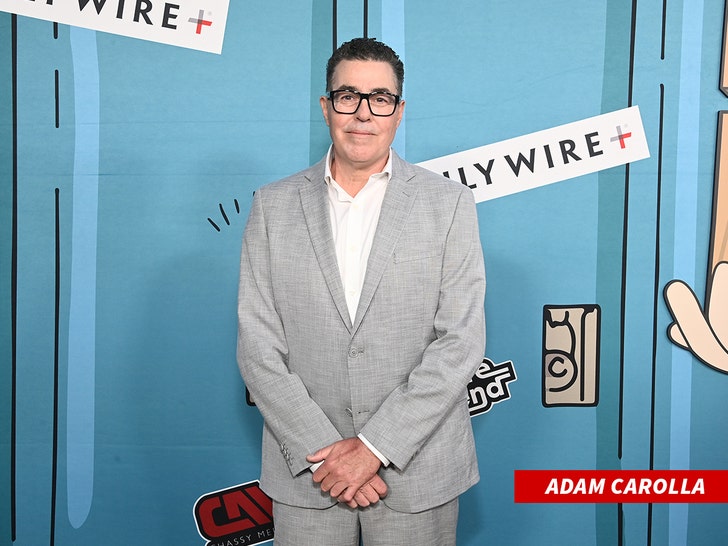
Adam Carolla Supports Donald Trump's 100% Foreign-Made Film Tariffs
Adam Carolla Supports Donald Trump’s 100% Tariff on Foreign-Made Films to Revitalize Hollywood
Table of Contents
- Adam Carolla Endorses Trump’s Film Tariff Proposal
- The Hollywood Exodus: Why Production Left Los Angeles
- Carolla Calls Out Industry Double Standards
- The Breaking Bad Example: California’s Lost Opportunity
- Potential Economic Impact of the Tariff Policy
- Industry Reaction to Trump’s Tariff Proposal
- Conclusion: Will Tariffs Bring Hollywood Home?
Adam Carolla Endorses Trump’s Film Tariff Proposal
Comedian and podcast host Adam Carolla has publicly backed former President Donald Trump’s proposal to implement a 100% tariff on films produced outside the United States. Speaking with TMZ, Carolla expressed strong support for the policy, claiming it could be the catalyst needed to revitalize Hollywood production and bring filmmaking back to its traditional home in Los Angeles.
Adam Carolla discusses his support for Trump’s film tariff policy. (Source: TMZ)
The proposed tariff would effectively double the cost of importing foreign-produced films into the American market, creating a strong financial incentive for studios to keep production within U.S. borders. According to Carolla, this dramatic policy shift could help address what he sees as a critical issue in the entertainment industry: the widespread outsourcing of film production to other countries.
The Hollywood Exodus: Why Production Left Los Angeles
Carolla explained to TMZ that Los Angeles was once the undisputed center of global film production, but rising taxes, increasing costs, and bureaucratic hurdles have pushed many projects to relocate elsewhere. The comedian highlighted how major films are now routinely shot in Canada, Europe, and various international locations instead of in Hollywood.
Key Factors Driving Production Overseas:
- Lower production costs in foreign countries
- Generous tax incentives and rebates offered by other nations
- Rising costs of doing business in California
- Complex regulatory environment in Los Angeles
- Access to diverse filming locations abroad
This exodus has had significant economic consequences for the Los Angeles region, with many skilled industry workers forced to either relocate or change careers. The loss of production activity has also affected numerous support businesses that traditionally catered to the film industry, from catering services to equipment rental companies.
Carolla Calls Out Industry Double Standards
In his interview, Carolla didn’t hold back when discussing what he perceives as hypocrisy within the entertainment industry. He pointed out that Hollywood often promotes messages about fair wages, supporting American workers, and paying one’s “fair share” of taxes, yet is quick to move productions overseas to minimize costs.
This criticism highlights a tension within the industry between the progressive values often espoused in content and the business decisions made behind the scenes. Carolla suggests that Trump’s tariff proposal could force the industry to align its economic practices more closely with its stated values.

Carolla frequently criticizes what he sees as hypocrisy in the entertainment industry. (Source: TMZ)
The Breaking Bad Example: California’s Lost Opportunity
To illustrate his point about the flight of production from California, Carolla shared a personal anecdote involving his friend, actor Bryan Cranston. He recalled driving Cranston to the airport so he could travel to New Mexico to film the hit series “Breaking Bad” — a show that was originally planned to be shot in Riverside, California.
According to Carolla, “Breaking Bad” relocated production to New Mexico primarily due to the high costs associated with filming in California. This move not only took jobs away from California-based crew members but also deprived the state of significant economic activity and tax revenue over the show’s five-season run.
| Aspect | California Production | New Mexico Production |
|---|---|---|
| Tax Incentives | Limited at the time | 25-30% rebate program |
| Labor Costs | Higher union rates | Lower overall labor costs |
| Location Fees | More expensive | More affordable |
| Regulatory Environment | More restrictive | More production-friendly |
This example resonates with many in the industry who have witnessed similar production relocations over the years. Shows and films that could have generated jobs and economic benefits for California have instead benefited other states and countries due to more favorable financial conditions elsewhere.
Potential Economic Impact of the Tariff Policy
Carolla’s argument for Trump’s proposed tariff centers on its potential economic impact. He suggests that if producing films outside the United States becomes financially prohibitive due to the 100% import tariff, studios would have a strong incentive to return production to Hollywood and other American locations.
From Carolla’s perspective, the equation is straightforward: if making movies in America becomes more cost-effective than shooting overseas, the industry will naturally gravitate back to its historical home. This return could create numerous jobs for American crew members, actors, and support staff while revitalizing local economies that have traditionally depended on film production.
Potential Benefits of Increased Domestic Production:
- Creation of thousands of film industry jobs
- Increased tax revenue for local and state governments
- Economic boost for businesses that support film production
- Preservation of specialized film industry skills and infrastructure
- Potential for technological innovation in domestic production facilities
However, critics of the tariff proposal argue that it could have unintended consequences, potentially reducing the global competitiveness of American films and limiting creative options for filmmakers who benefit from international locations and talent pools.
Industry Reaction to Trump’s Tariff Proposal
While Carolla has publicly supported Trump’s tariff idea, reactions across the broader entertainment industry have been mixed. Some producers and studio executives have expressed concern that such a drastic policy could disrupt established business models and international co-production arrangements that have become common in modern filmmaking.
Labor unions representing film crew members have generally responded more positively to the concept, seeing it as a potential boon for their members who have faced reduced work opportunities as production has moved abroad. Organizations like IATSE (International Alliance of Theatrical Stage Employees) have long advocated for policies that would keep more production work within the United States.
Economic analysts have noted that the effectiveness of such a tariff would depend significantly on its implementation details and whether it would apply equally to all types of productions or include exceptions for certain categories of content or international co-productions.
Conclusion: Will Tariffs Bring Hollywood Home?
Adam Carolla’s endorsement of Donald Trump’s proposed 100% tariff on foreign-made films highlights the ongoing debate about the future of American film production. The comedian’s support stems from his desire to see Hollywood return to its roots as the global center of filmmaking and to create more opportunities for industry workers in Los Angeles and beyond.
Whether such a tariff would achieve its intended goals remains a matter of debate among industry insiders and economic experts. The proposal represents a dramatic intervention in an industry that has become increasingly globalized over recent decades, with complex international production arrangements now the norm rather than the exception.
As the conversation around this policy proposal continues, stakeholders across the entertainment industry will be weighing the potential benefits of increased domestic production against the challenges of adapting to such a significant change in the economic landscape of filmmaking.
For Carolla and others who share his perspective, the hope is that policy interventions like the proposed tariff could help reverse the trend of production leaving the United States and restore Hollywood to its former prominence as not just the creative hub of the film industry, but its primary production center as well.







